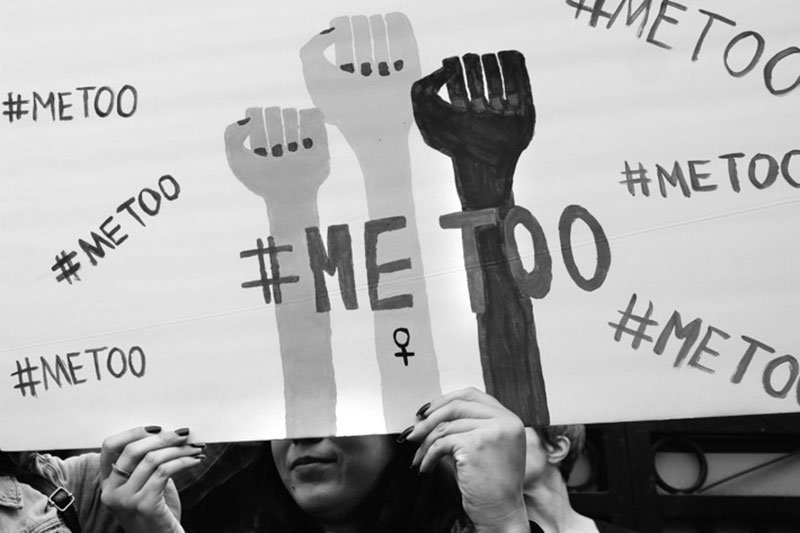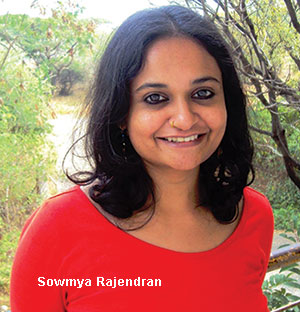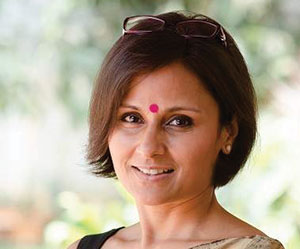With #metoo stories dominating print and television headlines and the social media during the past two months, the role of parents in educating male children about women’s rights and freedoms, mutual consent, and practising gender equality from early age, has begun —even if belatedly — to receive academic interest and attention – Sruthy Susan Ullas
 A year after it kicked off a firestorm in the US, the #metoo movement i.e, a mass protest against sexual harassment of women in the workplace, has gone global. Last month, the #metoo movement swept over India like a tsunami, outing sexual predators lording it over the entertainment and media industries. A Union minister, celebrated editors, artistes, veteran actors, directors and stand-up comedians have been exposed as serial offenders as numerous highly educated and accomplished women professionals shed their inhibitions and posted their stories of sexual harassment and intimidation in the workplace on social media sites.
A year after it kicked off a firestorm in the US, the #metoo movement i.e, a mass protest against sexual harassment of women in the workplace, has gone global. Last month, the #metoo movement swept over India like a tsunami, outing sexual predators lording it over the entertainment and media industries. A Union minister, celebrated editors, artistes, veteran actors, directors and stand-up comedians have been exposed as serial offenders as numerous highly educated and accomplished women professionals shed their inhibitions and posted their stories of sexual harassment and intimidation in the workplace on social media sites.
A year earlier, sexual abuse accusations against Hollywood films producer Harvey Weinstein triggered America’s #metoo and Time’s Up revolutions, as several famous actresses opened the pandora’s box of #metoo stories on social media. Lionised as ‘silence breakers’ by the iconic globe girdling Time magazine, they were collectively honoured as Time Persons of the Year 2017.
Likewise, India’s #metoo movement was ignited in Bollywood in September, when former actress Tanushree Dutta accused veteran film star Nana Patekar of sexual misconduct on a movie set ten years ago. Dutta’s adamant refusal to retract or conciliate sparked an unprecedented pent-up fire of #metoo accusations with women in several professions and vocations giving vent to long suppressed outrage. Top-level apologies, resignations and counter-attacks followed in the wake of India’s #metoo tsunami.
The major celebrity swept away in the flood was M.J. Akbar, a brilliant editor-columnist and Union minister of state for external affairs. Among the severely damaged: Prashant Jha, political editor of the Hindustan Times; K.R. Srinivas, resident-editor of Times of India, Hyderabad; Chetan Bhagat, best-selling writer-author; Vikas Bahl, film director; actor Alok Nath and Hindi news channel veteran Vinod Dua.
With #metoo stories dominating print and television headlines and the social media during the past two months, hitherto peripheral issues of gender equality, women’s safety, sexual assault and consent have sparked furious debates in the drawing rooms of the country’s fast expanding middle class. As educated professional women are shedding traditional inhibitions and asserting their rights to freedom of movement and safety and dignity in workplaces, the role of parents in educating male children about women’s rights and freedoms, mutual consent, practising gender equality from early age and empowering girl children to speak up against sexual abuse, has also begun — even if belatedly — to receive academic interest and attention.
 “The #metoo movement has raised the very important issue of women’s safety in our patriarchal male-dominated society. As a parent, I am delighted this issue has come out in the open as children and young adults need to be educated about mutual consent, the social and legal consequences of sexual assault and the importance of providing girl children and women safe places to study and work. I want my son to grow up well aware that there will be severe consequences for abusing women, and my daughter to know that she has a fundamental right to safety and dignity in school, college and her working place. Moreover, parents themselves need to be encouraged to practise gender egalitarianism at home with both male and female children given equal opportunities, and male children being pointedly educated about respecting women’s rights,” says Sandhya Menon, the fiery Bangalore-based journalist who was the first woman from the media to out three people including K.R. Srinivas, resident-editor of Times of India, Hyderabad, for sexual harassment.
“The #metoo movement has raised the very important issue of women’s safety in our patriarchal male-dominated society. As a parent, I am delighted this issue has come out in the open as children and young adults need to be educated about mutual consent, the social and legal consequences of sexual assault and the importance of providing girl children and women safe places to study and work. I want my son to grow up well aware that there will be severe consequences for abusing women, and my daughter to know that she has a fundamental right to safety and dignity in school, college and her working place. Moreover, parents themselves need to be encouraged to practise gender egalitarianism at home with both male and female children given equal opportunities, and male children being pointedly educated about respecting women’s rights,” says Sandhya Menon, the fiery Bangalore-based journalist who was the first woman from the media to out three people including K.R. Srinivas, resident-editor of Times of India, Hyderabad, for sexual harassment.
The flood of hitherto suppressed #metoo narratives which are pouring out of twitter and facebook accounts countrywide, is hardly surprising. India has fared — and continues to fare — poorly on all international gender equality indices. According to the World Economic Forum’s Global Gender Gap Report 2017, India is ranked #108 (among 144 countries) — a slide from its 2016 rank of #87 — on WEF’s gender gap index.
Another report Precarious Drop: Reassessing Patterns of Female Labour Force Participation in India (April 2017) published by the World Bank reveals that while women constituted 34.8 percent of India’s labour force in 1990, participation fell to 23.7 percent in 2016, with women contributing only 18 percent to India’s GDP — indicative of unsafe or unconducive workplaces. Moreover with the Union government and the establishment refusing to take a firm stand and block pornography being streamed into India from decadent Western countries where the production and export of violent and perverted pornography — including child porn — has become a major industry, sex crime graphs are rising steeply. According to the National Crime Records Bureau, 338,954 crimes against women were registered in 2016 with reported cases of rape accounting for 11 percent (38,947), i.e, one rape outrage every four hours.
Even as demands for stricter implementation of the guidelines of the Supreme Court in the Vishaka Case (1997) pertaining to sexual harassment in workplaces and tightening the law, order and justice machinery are growing, the academy has belatedly become aware that shabbily designed syllabuses and curriculums in early childhood and school education which perpetuate gender stereotypes and inequality in households across the country, also need urgent review. A recent study titled ‘Gender Understandings among Teachers and Students: Discourses from Delhi,’ published in South Asia Research (October), authored by Meenu Anand, professor in the department of social work at Delhi University, highlights that elementary school teachers are loaded with archaic notions and prejudices of masculinity and femininity. Of the 160 teachers interviewed in 16 government and private schools, two-thirds believed that “men need to be brave and strong, and women subservient and flexible”.
“An important role of the education system is transmission of values and ethics to children. Gender equality and sensitisation is an integral part of the values template. All textbooks need to be purged of gender stereotypes to promote an egalitarian social culture in which girl children and women are depicted and lauded for being engaged in non-traditional roles and vocations. Moreover teachers should be trained to practice gender equality in their classrooms and eliminate traditional gender biases which routinely portray girl children as weak and subservient. Fortunately, students fared better than teachers in our study. They were more progressive than their teachers and voiced gender-balanced standpoints and questioned traditional gender stereotypes,” says Anand.
The great majority of the country’s ill-trained teachers apart, most parents and households practice gender stereotyping and inequality. In most of India’s 210 million households — including middle class homes — gender  stereotyping begins from early childhood. From the colour of the nursery to choice of toys and games, and prescribed behavioural norms, most couples and joint families raise male and girl children differently. A 2017 survey of Podar Education Network and Early Childhood Association of India discovered deep gender biases in toys selection with 70 percent of parents interviewed rejecting the idea of purchasing kitchen sets for male children and Lego sets for daughters. Over 90 percent of mothers disparaged a suggestion to purchase teddy bears for male children. Moreover, 60 percent of parents interviewed saw nothing wrong in buying pink garments for girls and blue for boys, and choosing engineering maintenance tool kits for male children and art and crafts kits for girls.
stereotyping begins from early childhood. From the colour of the nursery to choice of toys and games, and prescribed behavioural norms, most couples and joint families raise male and girl children differently. A 2017 survey of Podar Education Network and Early Childhood Association of India discovered deep gender biases in toys selection with 70 percent of parents interviewed rejecting the idea of purchasing kitchen sets for male children and Lego sets for daughters. Over 90 percent of mothers disparaged a suggestion to purchase teddy bears for male children. Moreover, 60 percent of parents interviewed saw nothing wrong in buying pink garments for girls and blue for boys, and choosing engineering maintenance tool kits for male children and art and crafts kits for girls.
“Parents have a responsibility and duty to teach gender equality and sensitivity to male children from early age. Gender attitudes are shaped at very young age and given that we live in a patriarchal society, it’s not surprising that most people have regressive ideas about women’s status and social standing. Therefore, it’s imperative for modern day parents to practise gender neutral parenting. That is the key to nurturing responsible male children who are respectful of women’s rights in the workplace, home and society,” says Sowmya Rajendran, a postgraduate in gender studies of the University of Sussex and author of 20 books including the award-winning Mayil will not be Quiet (2011).
 Dr. Sulata Shenoy, a child psychologist and director of Turning Point, a Bangalore-based centre for psychological assessments, therapies and counselling, believes that it’s also important for parents to eliminate gendered division of household chores. A 2014 Neilson-Ariel survey indicates that two-thirds of men surveyed in five Indian metros don’t help with household activities. “Children learn through observation and parents who share domestic chores deliver important lessons in gender egalitarianism. Unfortunately in most Indian households, women tend to be in the kitchen and discharge child rearing duties in addition to office work while men are career-driven. If a male child grows up witnessing his father sharing housework and parenting responsibilities and a mother who is successful professionally, he will respect women and practice gender egalitarianism,” says Shenoy.
Dr. Sulata Shenoy, a child psychologist and director of Turning Point, a Bangalore-based centre for psychological assessments, therapies and counselling, believes that it’s also important for parents to eliminate gendered division of household chores. A 2014 Neilson-Ariel survey indicates that two-thirds of men surveyed in five Indian metros don’t help with household activities. “Children learn through observation and parents who share domestic chores deliver important lessons in gender egalitarianism. Unfortunately in most Indian households, women tend to be in the kitchen and discharge child rearing duties in addition to office work while men are career-driven. If a male child grows up witnessing his father sharing housework and parenting responsibilities and a mother who is successful professionally, he will respect women and practice gender egalitarianism,” says Shenoy.
Against the backdrop of deeply entrenched preference for male children in Indian society, parents and educators need to consciously sensitise male children about women’s rights, freedoms and the legal and social consequences of sexual harassment, teasing, stalking and assault. With the #metoo movement having beamed a harsh spotlight on India’s education system which perpetuates gender stereotypes and biases, a number of NGOs have come forward to aid and advise primary-secondary schools to infuse gender egalitarianism in their curriculums.
For instance, Action Breaks Silence, a UK-based NGO, conducts workshops in collaboration with the Centre for Gandhian Studies of Alphonsa College, Kottayam (Kerala). “Why is it always that girl children are advised, corrected and need to be taught self-defence? It’s time that male students are also educated about women’s rights. Our workshops break gender stereotypes instilled in male children, teach them to become empathetic towards women, respect their rights and freedoms including their right to reject sexual overtures and propositions,” says Prof. Teresa Joseph, an alum of Mahatma Gandhi University, Kerala and professor of political science at Alphonsa College. Since 2017, the college has conducted 788 workshops in 17 schools across Kerala.
Yet another important message of the #metoo movement for parents is to educate girl children about good and bad touch, and empower and encourage them to report instances of sexual abuse without fear of social stigma and ridicule. “Parents should have no hesitation about discussing safe and unsafe touch with preschool children followed by age-appropriate sex education at home. Especially during adolescence, it’s important to discuss the issues of sexual restraint, abuse and harassment. Stories allowing for questions and discussions are a good way to introduce these concepts to children. Create an environment of trust which encourages children to report instances of inappropriate touch and sexual abuse, and don’t hesitate to seek professional assistance from a mental health professional, if required,” advises Dr. M. Nithya Poornima, assistant professor, department of clinical psychology, National Institute of Mental Health and Neuro Sciences (NIMHANS), Bangalore.
Although it’s nascent, India’s #metoo movement marks a defining moment in the country’s social history. Women — especially educated middle class women — aren’t likely to silently endure sexual harassment at home or in workplaces as they suffered hitherto. Sexual predators, however high and mighty, are very likely to be publicly named and shamed, especially in the social media.
The crossing of this milestone in the women’s liberation movement makes it incumbent upon responsible parents to educate and sensitise male children about practicing gender egalitarianism, respecting women’s freedoms and rights and appropriate sexual behaviour in public and private spaces. Parents who fail and neglect to discharge this increasingly important duty are exposing them to the dangers of naming, shaming and public disgrace.
Raising gender sensitive children
To prepare male children to grow into responsible teens and respectable adults in the new era in which women have few inhibitions about outing actual or perceived sexual harassment, it’s a vital parenting duty to educate, advise and counsel them to practice gender egalitarianism and respect women’s rights and freedoms as also the norms of inter-gender good manners and behaviour. Bangalore-based child psychologist Dr. Sulata Shenoy advises parents on ways and means to nurture gender-sensitive children:
• Assign household chores to your children without gender bias. Male children should clean their rooms and shelves and help with household maintenance.
• Male parents should routinely share household work and duties with their wives.
• Include female family members and girl children in important family discussions and decisions. Ensure decision-making is not projected as the preserve of the male parent.
• Debate gender-related issues and share parents’ life experiences with children.
• Encourage girl children to play sports and engage in outdoor activities.
• Avoid gender stereotyping. Not only boys need to be ‘strong’ nor girls ‘beautiful’.
• Buy gender-neutral toys that the children of both sexes can play with.
• Purchase books with characters that break gender stereotypes and provide gender education and teach gender sensitivity.
• Engage children in discussions about the depiction of gender stereotypes in the media and society.
Books to break gender stereotypes
 Encouraging the reading habit offers opportunities to break gender stereotypes and promote equality. Here’s a selection of books which will help male children to develop positive attitudes towards the girl child.
Encouraging the reading habit offers opportunities to break gender stereotypes and promote equality. Here’s a selection of books which will help male children to develop positive attitudes towards the girl child.
 Picture books (preschool/primary school children)
Picture books (preschool/primary school children)
Pink & Blue, Ritu Vaishnav
Iggy Peck Architect, Ada Twist Scientist and Rosie Revere Engineer, Andrea Beaty
Pink is for Boys, Rob Perlman
Princess Smartypants, Babette Cole
The Paper Bag Princess, Robert Munsch
We Don’t Eat our Classmates, Ryan Higgins
Red, A Crayons Story, Michael Hall
Fiction for middle school children
Sarah Plain & Tall, Patricia Maclachlan
Wonder, R.J. Palaccio
Are you there God, It’s me Margaret, Judy Blume
The thing about Jellyfish, Ali Benjamin
Goodbye Stranger, Rebecca Stead
George, Alex Gino
Books for young adults
Hidden Figures, Margaret Lee Shetterly
The Handmaid’s Tale, Margaret Atwood
Fairy Tales & Fractured Fairy Tales
Cinderella, Charles Perrault (Picture book, multiple versions)
The Egyptian Cinderella, Shirley Climo
The Rough-faced Girl, Rafe Martin
The Golden Sandal: A Middle Eastern Cinderella Story, Rebecca Hickox
Cinder, Marissa Meyer
Ella Enchanted, Gail Carson Levine
Ash, Malinda Lo
(Kavita Gupta Sabarwal is managing trustee of the Neev Academy and five top-ranked Neev preschools in Bangalore and co-founder of the annual Neev Literature Festival)
Also read: Gurugram school boy who was named in #MeToo post, commits suicide























